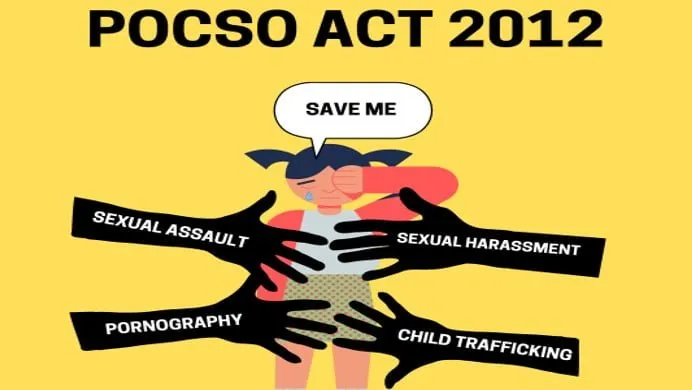INTRODUCTION
Welcome to the official blog of the Law Offices of Kr. Vivek Tanwar Advocate and Associates, where we are dedicated to providing litigation support services for matters related to crime against Children. In today’s blog post, we aim to shed light on the prevailing issues surrounding crimes against children, the legal framework in place for their protection, and the steps we can take as a society to combat these heinous acts. Join us as we explore this critical subject and empower you with the knowledge to protect your rights and safety.
WHAT IS THE POCSO ACT?
The POCSO Act, short for the Protection of Children from Sexual Offences Act, is legislation in India that aims to protect children from sexual abuse and exploitation. It defines various forms of sexual offences against children and prescribes stringent punishments for offenders. The act covers a wide range of offences, including but not limited to child molestation, child pornography, and sexual harassment of children. It also provides for the establishment of special courts and procedures to ensure the speedy trial and effective implementation of the law. The POCSO Act places the welfare and protection of children as a top priority in cases of sexual offences and seeks to create a safer environment for children in the country.
CONFIDENTIALITY OF THE CHILD
Confidentiality of victims in POCSO Act (Protection of Children from Sexual Offences Act) related cases is of utmost importance. The POCSO Act recognizes the vulnerability of child victims of sexual offences and aims to provide them with special protection and support.
To ensure the confidentiality of the victims, the following measures are generally taken:
- Identity Protection: The identity of the child victim, including their name, address, and other identifying details, is kept confidential throughout the legal proceedings. The use of the victim’s real name is avoided, and instead, initials may be used to protect their identity.
- In-camera Proceedings: POCSO Act cases are often conducted in-camera, which means the public and media are excluded from the courtroom during the trial. This is done to prevent the victim’s identity from being revealed and to create a safe and supportive environment for the child during the legal proceedings.
- Non-Disclosure Orders: The court may issue non-disclosure orders that restrict the publication of any information that may lead to the identification of the victim. This includes prohibiting the media from publishing the victim’s name, photographs, or any other details that could reveal their identity.
- Restricted Access to Case Information: Access to case records and details is limited to the parties involved in the case, such as the judge, lawyers, and authorized court personnel. This helps prevent unauthorized disclosure of the victim’s identity.
- Protection during Testimony: Special provisions may be made to protect the child victim while testifying in court. This can include screens or video-conferencing facilities to shield the child from direct contact with the accused or the public.
- Punishment for Breach of Confidentiality: The POCSO Act imposes strict penalties for any person or media organization that violates the confidentiality of the victim. This can include imprisonment and fines.
Section 228A of the IPC states that the disclosure of the identity of a victim of certain offences, including offences under POCSO, is prohibited. It prohibits the printing or publishing of the name or any matter which exposed the identity of the victim. This provision is aimed at protecting the privacy and dignity of the victim.
Similarly, Section 23 of the POCSO Act also states the protection of the identity of the child victim. It mandates that the identity of the child should not be disclosed, and it should be protected from the media. It further states that the identity of the child victim should not be disclosed unless the court permits such disclosure in writing, and only if it is in the interest of the child.
LANDMARK CASE
Bijoy Vs. State of West Bengal, in this case, the Calcutta High Court stressed the importance of these provisions. However, it was found that if the identity of the victim had been disclosed it is a violation of the law.
Indira Jaisingh, serving as amicus curiae in the Kathua gang rape case, accused the police of prematurely leaking information to the public. She referred Supreme Court’s interpretation of Section 228A of the IPC and Section 23 of the POCSO Act, concerning victim identification and media reporting.
CONCLUSION
The right to privacy and confidentiality is a basic right recognized by the POCSO Act and the POCSO Rules. The obligation of confidentiality applies to all third persons, support persons, interpreters, translators, special educators, and experts. It states that while these measures are in place to protect the identity of child victims, they do not prevent the accused or their legal representatives from knowing the identity of the victim. The focus is primarily on preventing public disclosure that could lead to stigmatization or harm to the child.
We are a law firm in the name and style of Law Offices of Kr. Vivek Tanwar Advocate and Associates at Gurugram and Rewari. We are providing litigation support services for matters related to POCSO ACT, 2012. We have a website on which we publish blogs informing the litigants about the said laws. Draft a blog which can be published on our website…..
Written by: Adv. Priyanka Goel (D/945/2020) .


They’re reshaping international pharmaceutical care.
cost cheap lisinopril without dr prescription
I always find great deals in their monthly promotions.